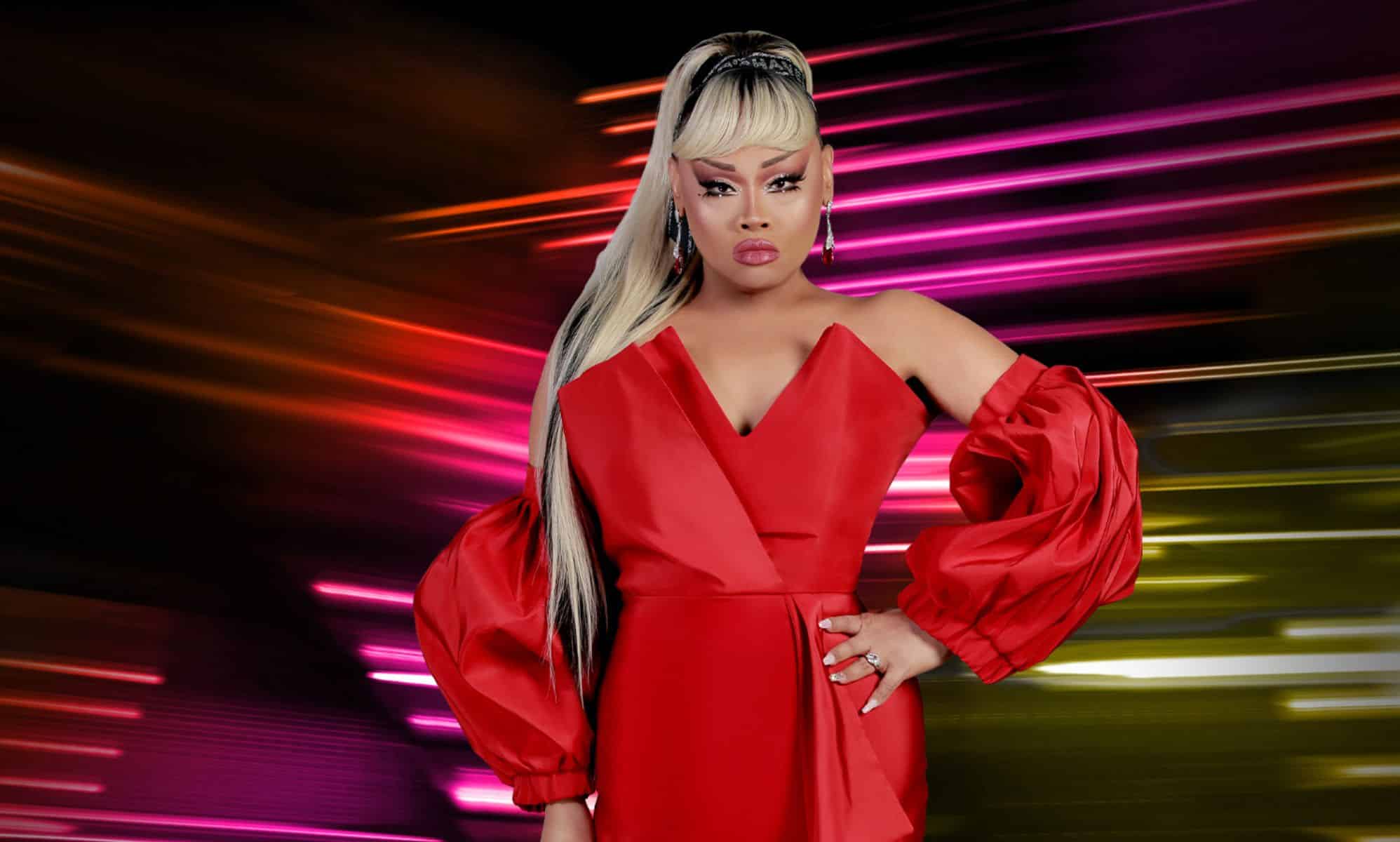Drag Race’s Jiggly Caliente on fighting for trans rights and why she’ll never be ashamed of sex work

Jiggly wants young trans people to know they can “survive and thrive”. (Getty/Envato)
Jiggly Caliente talks Drag Race, her all-trans talk show Translation and her own journey to living authentically.
With trans candidates Leigh Finke and James Roesener recently making history in the US elections, some may argue that the country is heading in the right direction when it comes to trans rights.
For Drag Race Philippines judge and Pose actor Jiggly Caliente though, it’s a little more complex than that. How does she feel about the state of the world right now for trans people?
“Uneasy,” she says, without missing a beat. “I feel like we take one step and then there’s like five steps back.”
In the US, attacks on the rights of the LGBTQ+ community are becoming bolder, from Florida’s abhorrent ‘Don’t Say Gay’ law, to Tennessee’s plans to ban drag performances and trans healthcare. We spoke to Jiggly before Donald Trump confirmed his 2024 run for the White House, which is bound to unleash yet more transphobia upon America. It can be difficult to look on the bright side.
“I feel like if you are not cis, hetero [or] white in this world, there’s really no protection for you as far as in human rights. We’re fighting for the bare minimum,” Jiggly tells PinkNews.
“With all the legislations that are happening, with all the politics that’s going on, with even our autonomy. Like, that’s crazy how the government is trying to have a say in how we treat our bodies. It’s just crazy to me that this is our world, and we have to talk about it.”
Jiggly, also known as Bianca Castro, currently has a platform to do just that. She’s recently joined forces with fellow Drag Race contestants and trans women Kylie Sonique Love, Peppermint, and Carmen Carerra for the second season of Translation, a talk show where trans lives are always the topic of conversation.
The group discusses everything from chosen family to the importance of pageants like Miss Continental for the LGTBQ+ community. For Jiggly, there is one topic that she felt passionately about covering: survival sex work.
“It was something I had to experience and I’m never ashamed of it, never ashamed of what I had to go through to survive,” she says. “It is something a lot of trans people [do], because of all the politics that’s going on, and how we can’t even try to get regular jobs. So sometimes easy money is the way to go.
“It is something I wish that we spoke more of, so that people could understand the harsh reality of what trans [people], specifically trans women of colour, have to go through just to survive, to live in their authentic selves.”
While Translation is mainly focused on issues relating to the wider trans community, conversation does naturally turn to Drag Race too. In the first episode of the second season, when discussing trans women originally being banned from certain pageants for having “an advantage”, Carmen says: “It sounds very Drag Race.”
Even now, I don’t think the world is completely ready.
While Drag Race has come on leaps and bounds in terms of trans representation in recent years, with season 14 having five trans competitors, the show has also drawn intense criticism from former contestants regarding its earlier reluctance to platform trans queens.
“Carmen…she’s very opinionated about how she feels about how she was treated post Drag Race,” Jiggly says, referencing Carmen’s vocal opposition to RuPaul and the show. “I don’t necessarily think it was the machine. I think it was society that needed to grow and really understand the thought of other human beings that isn’t just male and female.
“At the time, I don’t think the world was ready. Even now, I don’t think the world is completely ready. But I think that we are just making the world know that this has to change.” Now, Jiggly is starring as one of two trans judges on the panel of Drag Race Phillippines.

Jiggly Caliente has recently wrapped up the first season of Drag Race Philippines. (World of Wonder)
On Translation, Jiggly Caliente also discusses her own experiences of the show, particularly how she was transitioning during her original Drag Race run on season four but didn’t discuss it on-screen as she was “afraid” of the public’s response.
“I personally just didn’t think I was ready to face the world and their opinions on my transness,” she says now. However, it was with the help of one former contestant that Jiggly felt able to push past her own reservations and come out.
“Jeremi, the artist formerly known as Phi Phi O’Hara, was the one who was like: ‘Why don’t you just let the world know? Because you are working twice as hard hiding who you are than if you just admit to people that yes, you are a trans person.’
“He was like: ‘As much as you want to keep a piece of yourself private, you can’t do that when you put yourself in a very public space,'” Jiggly adds. “So that’s what happened.”
It’s been a long journey for Jiggly. She’s faced fears about coming out publicly while acceptance from her biological family “didn’t come easy,” she says. Now though, her personal relationships are “blessed” and her career is flourishing.
Her first judging stint on Drag Race Philippines has just wrapped up and she’s currently featured in WOW Presents’ Binge Queens, in addition to putting the world to rights on Translation. What does she hope the talk show will bring to young trans people who tune in?
“I hope that they can see at least somebody like them. No matter what, representation really does matter,” Jiggly says. “They can survive and they can thrive.”

